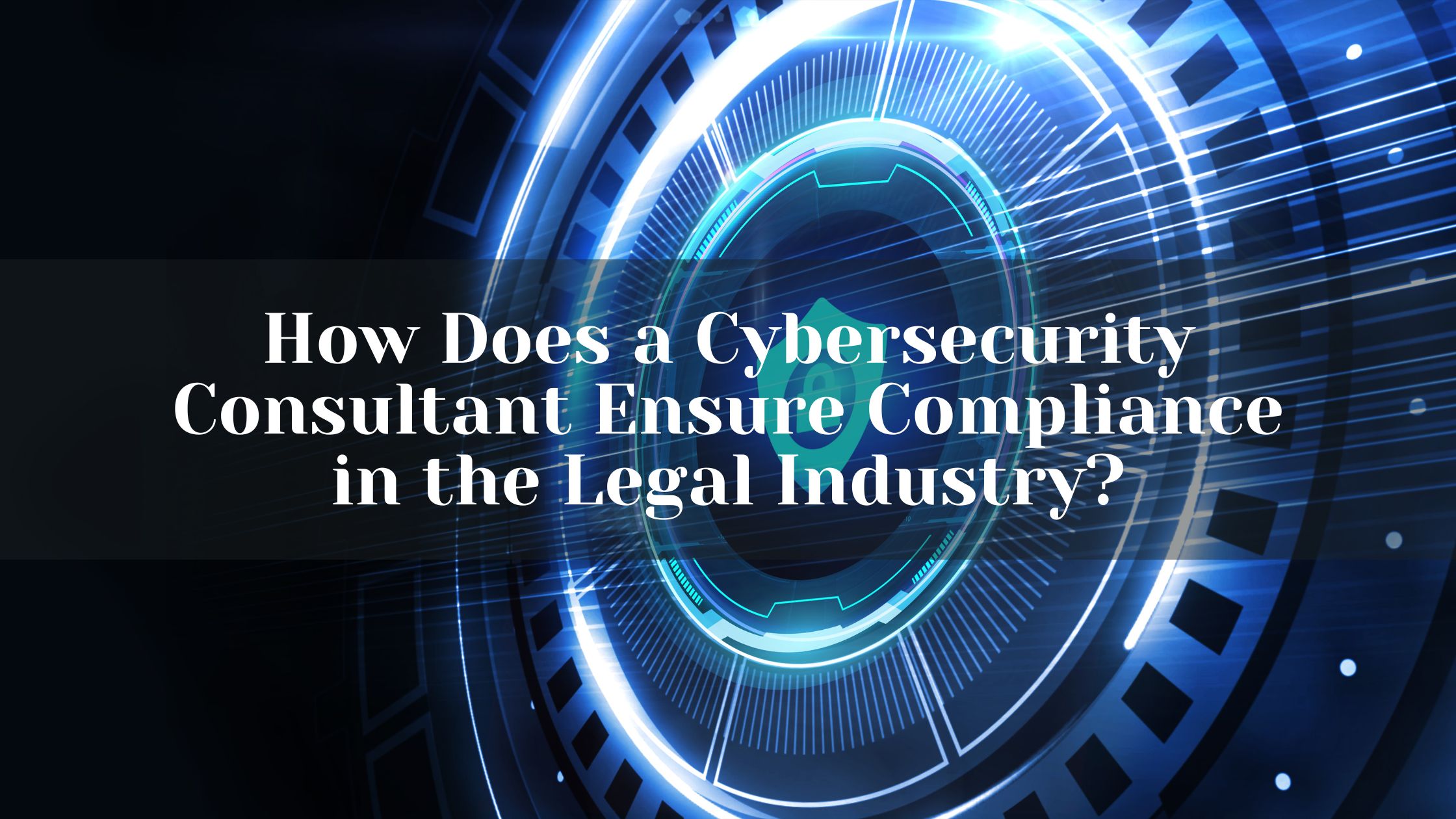How Does a Cybersecurity Consultant Ensure Compliance in the Legal Industry?

Strong 8k brings an ultra-HD IPTV experience to your living room and your pocket.
The legal industry is at a crossroads where cybersecurity and compliance have become paramount. As technology infiltrates every aspect of our lives, law firms and legal professionals are entrusted with sensitive information, making them prime targets for cyber threats. In this article, we delve into the intricate world of cybersecurity consultant in the legal sector, exploring the meticulous steps taken by experts to ensure compliance and safeguard valuable data.
Understanding the Legal Landscape
The legal industry operates where confidentiality, integrity, and trust reign supreme. Attorneys, law firms, and corporate legal departments handle sensitive information ranging from client data to trade secrets. Cybersecurity consultancy recognizes this sector's unique challenges and tailor their strategies accordingly.
Know- How Cyber Security Companies in Dubai Ensure Compliance in the Legal Industry?
A Cybersecurity Consultant is pivotal in ensuring compliance within the legal industry, where data protection and confidentiality are paramount. This involves implementing comprehensive strategies to safeguard sensitive information, maintain client trust, and adhere to legal and regulatory requirements.
Risk Assessment and Analysis
A Cybersecurity Consultant begins by thoroughly assessing the law firm's digital ecosystem. This includes analyzing potential vulnerabilities, identifying assets that need protection (such as client records, case documents, and proprietary information), and assessing the potential impact of security breaches.
Tailored Security Policies and Procedures
The consultant works closely with the law firm to develop tailored security policies and procedures. These documents outline guidelines for data handling, access controls, encryption, incident response, and more. They ensure that every action taken within the firm's digital environment adheres to the prescribed security standards.
Regulatory Framework Familiarization
Legal professionals are subject to various regulations like GDPR, HIPAA, and industry-specific standards. Cybersecurity Consultant familiarizes themselves with these regulations to guide the implementation of security measures that align with compliance requirements.
Training and Awareness
Educating staff about cybersecurity best practices is crucial. The cyber security companies in Dubai conduct training sessions to raise awareness about potential threats, social engineering attacks, etc. This empowers employees to play an active role in maintaining compliance.
Access Management and Authorization
Access to sensitive legal data must be controlled rigorously. The consultant establishes robust authentication and authorization mechanisms, ensuring only authorized personnel can access confidential information. This prevents unauthorized leaks and breaches.
Data Encryption and Secure Communication
Encryption is vital for safeguarding data during transmission and storage. The cybersecurity consultant facilitates the implementation of encryption protocols for emails, file sharing, & data storage, ensuring that client-attorney communications remain confidential.
Intrusion Detection and Prevention
Continuous monitoring is key to early threat detection. The consultant sets up intrusion detection and prevention systems to detect unusual activities and potential breaches. Rapid response protocols are established to mitigate any threats detected.
Regular Security Audits and Assessments
The cybersecurity companies in Dubai conduct regular security audits and assessments to evaluate the effectiveness of security measures. By identifying weaknesses and addressing them promptly, the law firm can maintain a strong security posture and compliance readiness.
Incident Response Planning
Despite all precautions, security incidents can still occur. The consultant assists in developing a comprehensive incident response plan. This plan outlines the steps to take in a breach. It ensures swift and effective mitigation while minimizing legal and reputational risks.
Vendor and Third-party Risk Management
Many legal firms collaborate with external vendors. The consultant assesses the security measures of these third parties to ensure they align with the law firm's standards. This prevents potential data breaches through less secure channels.
Documentation and Reporting
Compliance often requires extensive documentation. The consultant helps the law firm maintain accurate records of security measures, assessments, training, and incident responses. These records can be crucial in demonstrating compliance during audits.
By strategically incorporating these steps, a Cybersecurity Consultant contributes to the legal industry's compliance efforts. Their expertise helps legal firms uphold the confidentiality, integrity, and availability of sensitive data, fostering client trust.
Conclusion
In a world where data breaches can lead to irreparable damages, the role of a cybersecurity consultant in the legal industry cannot be overstated. These experts weave intricate strategies, ensuring compliance with regulations while safeguarding sensitive information from malicious intent. By comprehending the nuances of the legal landscape, crafting comprehensive frameworks, and embracing cutting-edge technologies, they contribute to the resilience of the legal sector in the face of ever-evolving cyber threats
Note: IndiBlogHub features both user-submitted and editorial content. We do not verify third-party contributions. Read our Disclaimer and Privacy Policyfor details.


